You are here
New Releases
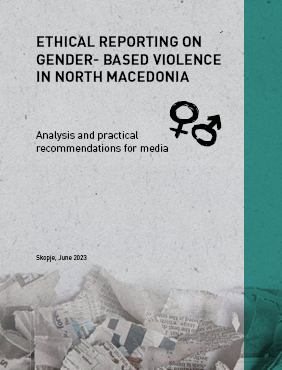
Ethical Reporting on Gender-Based Violence in North Macedonia
Media play an important role in the formation of societal attitudes and values and have immense potential to be an instrument for social change. According to the research conducted by the Agency for Audio and Audiovisual Services, there is still a ‘widespread portrayal of women in media through the framework of marriage and family’ by maintaining the traditional roles of women and emphasizing stereotypes.
On the other hand, the comprehensive study on women’s well-being shows that 60% of women in North Macedonia consider that violence against them is common, and almost three out of ten consider that it occurs very frequently. Compared to the average in the EU countries, women in North Macedonia consider that domestic violence is a private matter that should stay within the family.
This attitude, combined with the lack of knowledge about the existing specialized services for the protection of the victims of domestic violence, results in serious violations of women’s rights.
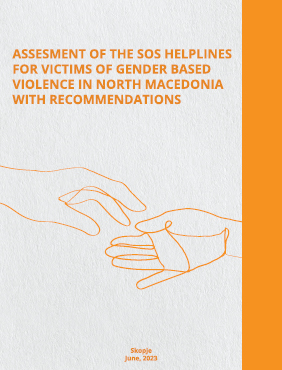
Analysis of the SOS helplines for victims of gender-based violence in North Macedonia and recommendations
The objective of the research was to assess the current situation of SOS helplines for women victims of domestic violence (DV) and gender-based violence (GBV) across the Republic of North Macedonia. The research was conducted from October to November 2022 to assess the situation of the national helplines for women victims of GBV/DV and their functionality against the Council of Europe Convention on Preventing and Combating Violence against Women and Domestic Violence (the Istanbul Convention) and its standards. The report was validated by the representatives of the three SOS helplines in March 2023.
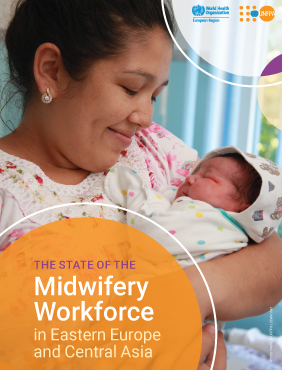
"The State of the Midwifery Workforce in Eastern Europe and Central Asia"
Commissioned by the UNFPA Eastern Europe and Central Asia Regional Office, with support from the World Health Organization Regional Office for Europe, The State of the Midwifery Workforce in Eastern Europe and Central Asia provides data about the current state of the midwifery workforce in 17 countries and territories in Eastern Europe and Central Asia. The report highlights the fact that properly trained midwives can help meet around 90 per cent of the need for essential sexual, reproductive, maternal, newborn and adolescent health (SRMNAH) interventions across the life course. It also underlines the many social and economic benefits to investing in midwifery: healthier families, productive communities and a health system that can deliver comprehensive services for all. With these benefits in mind, policymakers can use the report as guidance for investing in midwives and thus ensuring better socioeconomic outcomes.
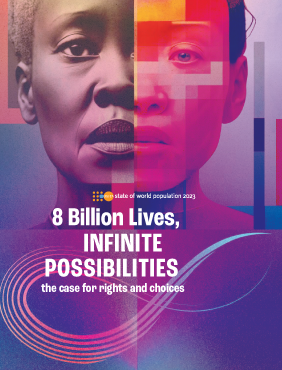
8 Billion Lives, Infinite Possibilities: the case for rights and choices
New data reveals population anxieties are widespread and governments are increasingly adopting policies aimed at raising, lowering, or maintaining fertility rates. But efforts to influence fertility rates are very often ineffective and can erode women’s rights, according to UNFPA's State of World Population report, released today.
The landmark report “8 Billion Lives, Infinite Possibilities: the case for rights and choices" calls for a radical rethink of how population numbers are framed – urging politicians and media to abandon overblown narratives about population booms and busts. Instead of asking how fast people are reproducing, leaders should ask whether individuals, especially women, are able to freely make their own reproductive choices – a question whose answer, too often, is no.
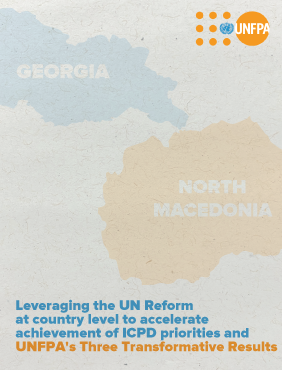
GLM2023: "The Art of Leadership - UNFPA in a Diverse World" - North Macedonia and Georgia examples
GLM2023: "The Art of Leadership - UNFPA in a Diverse World"
Leadership Exhibition – Effective Country Leadership Initiatives
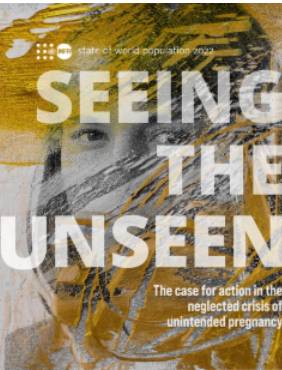
Seeing the Unseen: The case for action in the neglected crisis of unintended pregnancy
Half. That’s the share of all pregnancies that are unintended. What does this say about our values, our priorities – our future?
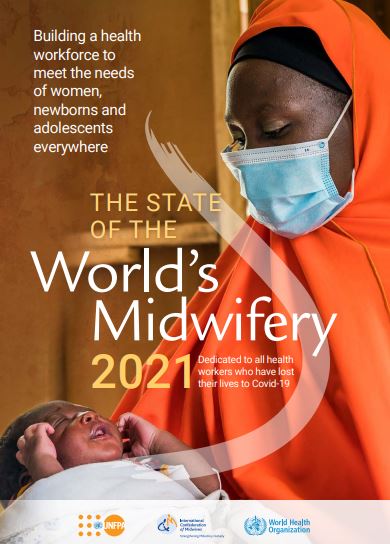
The State of the World's Midwifery 2021
The State of the World’s Midwifery (SoWMy) 2021 builds on previous reports in the SoWMy series and represents an unprecedented effort to document the whole world’s Sexual, Reproductive, Maternal, Newborn and Adolescent Health (SRMNAH) workforce, with a particular focus on midwives. It calls for urgent investment in midwives to enable them to fulfil their potential to contribute towards UHC and the SDG agenda.
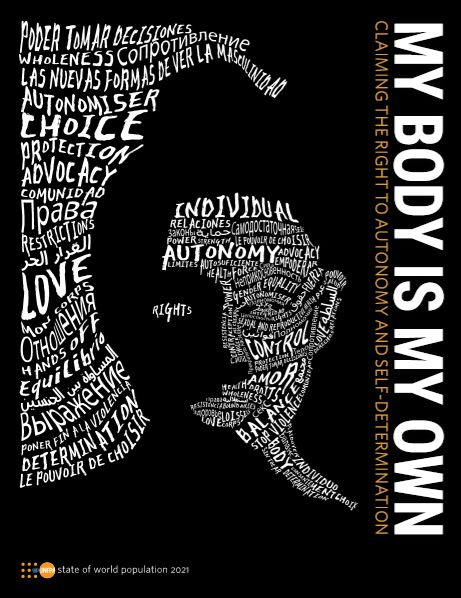
State of World Population report 2021
Nearly half of women in 57 countries are denied the right to decide whether to have sex with their partners, use contraception or seek health care, according to UNFPA's 2021 flagship State of World Population report, released today.
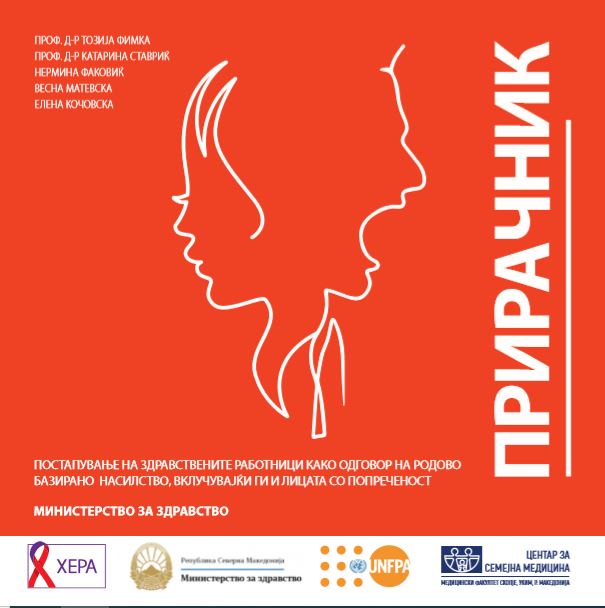
Handbook for Health Care Workers' Response in Cases of Gender-Based Violence Including Persons with Disabilities
This Handbook is intended for healthcare workers in order to guide and facilitate their work within the daily practice as well as to facilitate the application of gender-based violence (GBV) protocols including persons with disabilities.
For this purpose, the Handbook provides practical advice on recording, documenting, reporting and systematic data collection and monitoring of cases of GBV including persons with disabilities, in accordance with the Law on Health Records and the Recommendations of the World Health Organization (WHO) for the preservation of the physical and mental health of the victims, as well as for the rehabilitation of the injuries and psychological traumas.
This Handbook is primarily envisaged for healthcare workers (physicians, nurses and other healthcare workers) working as first healthcare responders in cases of GBV. However, it may also be used by other healthcare workers, such as GBV researchers and heads of healthcare institutions. Its regular usage can contribute towards the establishment of an integrated system for monitoring and response to GBV cases at the national, regional and local level.
The Handbook is available in Macedonian and in Albanian language.

State of World Population 2020
State of World Population 2020
AGAINST MY WILL
Defying the practices that harm women and girls and undermine equality